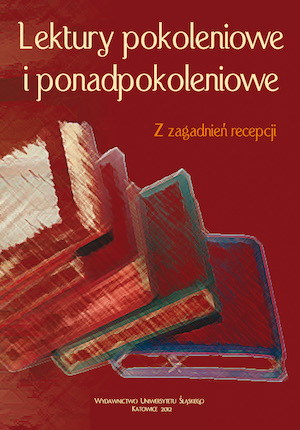The Long Walk Sławomira Rawicza jako przykład ponadpokoleniowej lektury w wolnym świecie
The Long Walk by Sławomir Rawicz as an example of an extra-generation reading in a free Word
Author(s): Jolanta Chwastyk-Kowalczyk
Subject(s): Language and Literature Studies
Published by: Wydawnictwo Uniwersytetu Śląskiego
Summary/Abstract: The article discusses the phenomenon of a one book author, Sławomir Rawicz, anauthor of The Long Walk. Since 13 April 1956 the novel, published in English by Constablein London has become a bestseller widely-discussed in the British, American and otherpress. The Polish emigration press, apart from a London editorial board of “Dziennik Polskiand Dziennik Żołnierza” hardly noticed the author’s success. The reviews appeared in “OrzełBiały” and “Paris Kultura”. Until 2007 the very memoires awaited 43 editions in 25 languages.It should be emphasized that The Long Walk in Polish was published as late as in1993 in London by Unicorn. The book constitutes a report from an impossible andseveral-month long escape of seven men from a Soviet labour camp near a polar polethrough Tibet, the Gobi Desert and the Himalayas reached India in March 1942. After theend of the World War II, the author settled down in Great Britain. In 2009, a scandal brokewhen Rawicz (dead since 2004) was accused of stealing the escape history of WitoldGliński, a veteran of Polish Armed Forces. It is interesting that the very facts were revealed aslate as after Sławomir Rawicz’s death. The author of The Long Walk cannot defend himself.A picture -realization of this escape, incredible and difficult to imagine, was undertaken byPeter Weir, an outstanding Australian author of such productions as Picnic at Hanging Rockor Dead Poets Society in 2010. The Polish premiere was on 8 April 2011.
Book: Lektury pokoleniowe i ponadpokoleniowe. Z zagadnień recepcji
- Page Range: 85-101
- Page Count: 17
- Publication Year: 2012
- Language: Polish
- Content File-PDF

